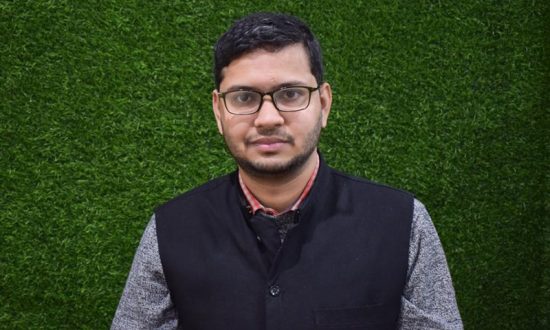Sajal Singh is the Founder of Civilsdaily, an online platform that optimizes the preparation journey of aspirants with their unique 1-1 mentorship program. As the Academic Head/Chief Learning Officer/Academic Director at the company, Sajal spearheads various content initiatives and ensures the smooth functioning of overall operations. A Gold Medalist from the prestigious Gokhale institute of Politics and Economics, Sajal graduated with a Master’s degree in Economics. He then went on to pursue an M.Sc. in Financial Economics from Carleton University Canada as an exchange student.
‘In the very womb of desire lies the light of knowledge’-Mahabharat
Becoming an IAS is desired by many but achieved by a few. So, If you are a Graduate Indian citizen and want to become an IAS or IPS officer, be Down to Earth. The fear of failure itself can be plenty of motivation to study for the exam.
The UPSC exam cannot be passed simply by being a bookworm. The personality test round is the final stage of the UPSC exam process, in which the UPSC board interviews the candidate to assess aspirants’ personalities and suitability for the services.
According to Civilsdaily, whether it’s a fresher or a mind enfeebled by repeated failures can start preparing for UPSC-CSE even more confidently if a master mentor becomes a torchbearer.
Let’s explore the Epitomes of success now.
Step:1 Know UPSC, Know the syllabus
You should prepare yourself for the journey before attempting to understand how to begin preparing for UPSC at home.
Prepare mentally and physically for the examination before beginning your preparation. Understand the UPSC exam pattern in depth and pace your IAS preparation accordingly.
The UPSC exam is divided into three stages: preliminary, mains, and interview. There is a significant difference between the syllabi of the Preliminary and Main Exams, as well as the nature of the questions, so the preparation strategy must be well thought out.
If you are working and have decided not to quit, think about how you will devote time to your studies and make a plan. With today’s technology, such as the internet, it is possible to easily balance preparation and a job.
Never forget the importance of the syllabus. It’s only the syllabus that will cement the way forward.
Step 2: Discover hope inside yourself
Some aspirants spend an indefinite amount of time researching the ‘best website’ and the ‘best coaching material’, ‘website for current affairs’ and invest less time reading it. Others have this perfectionist mindset that forces them to make copious notes and compilations from tons of material available in the market. Desist from this. Do your research for a day, decide on your sources, and stick with it. You’ll do just fine.
But, don’t miss that a mentor is someone who allows you to see the hope inside yourself.
Step 3: Keep feeding yourself with positive thoughts
Continue to feed yourself positive thoughts and reaffirmations.
Surround yourself with only those who will support you unconditionally and whenever the need arises ask for help as well. Give your body a good rest to boost your positivity.
Step 4: Be smart in picking topics
In the portion from which only one odd question was asked in the previous year’s papers, it’s smart to work that you should not devote time to such topics.
For example, world history, which is a vast topic, is one that many toppers did not prepare for. They studied the previous year’s papers and found that very few questions were asked about the topic. They ensured that they had a basic understanding of the topic and nothing more.
Finally, A journey of a hundred miles must begin with a single step. Nobody goes for this exam with the best preparation. But, to magnify your absolute achievement, determination, and hard work under a topper’s mentor is a must.




